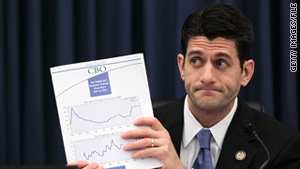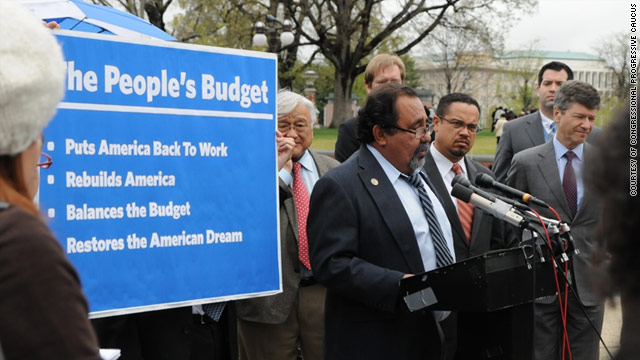Victories in Ohio, Mississippi, Maine and Arizona Provide Seven Key Lessons for 2012

By Robert Creamer
Progressive America Rising via Huffington Post
Nov. 9, 2011 - A year ago the Empire struck back. Right Wing money capitalized on anger at the economic stagnation that their own policies caused just two years before. They brought a halt to the hard-won progressive victories that marked the first two years of Barack Obama's presidency.
Last night the progressive forces tested some of the weapons and tactics they will use in next year's full-blown counter offensive. They worked very, very well.
Progressives won key elections in Ohio, Maine, Mississippi, and Arizona.
The importance of yesterday's labor victory in Ohio cannot be overstated. It could well mark a major turning point in the history of the American labor movement -and the future of the American middle class.
The people of Ohio rejected right wing attempts to destroy public sector unions by an astounding 61% to 39%. Progressives in Ohio won 82 out of 88 counties.
In his "concession," the author of the union-stripping bill, Governor John Kasich, looked like a whipped dog. He was.
Last night's victory will have a direct and immediate impact on the livelihoods of thousands of middle class state employees in Ohio. It will stall similar attempts to destroy unions in other states. It will turbo-charge the campaign to oust Wisconsin Governor Scott Walker who jammed a union-stripping measure through his own legislature. And it will massively weaken Kasich and other Republicans in Ohio.
But last night's victory also carried critical lessons for the progressive forces throughout America as we prepare for the crossroads, defining battle of 2012.
Lesson #1: Creating a Movement. The industrial state labor battles that culminated in last night's overwhelming Ohio success transformed the image of unions from a large bureaucratic "special interest" that negotiates for workers and are part of the "establishment" -- into a movement to protect the interests of the American Middle Class.
The Republican Governors who began these battles hoped to make a bold move to destroy union power. In fact, they have succeeded in creating their worst nightmare -- the rebirth of a labor movement.
That is critically important for the future of unions - which by any measure provide the foundation of progressive political power in the United States. It also provides an important lesson for every element of the Progressive community.
These battles put the "movement" back in "labor movement."
And the importance of "movement" can't be overstated. Particularly at a time when people are unhappy with the direction of the country and desperately want change -- they don't want leaders who appear to be embedded parts of the status quo. They want to be part of movements for change.
Movements have three critical characteristics:
They make people feel that they are part of something bigger than themselves.
They make people feel that they themselves can play a significant role in bringing about that larger goal.
They involve "chain reactions" -- they go viral. You don't have to only engage people in movements one by one or one or group by group. They begin to engage each other.
Because they make people feel that they are part of something larger than themselves -- and that they can personally be a part of achieving that larger goal -- movements inspire and empower. And for that reason they give people hope.
To win, Progressives must turn the anger and dissatisfaction with the present into inspiration and hope for the future.
The labor movement turned the battle in Ohio into a fight for the future of America's middle class. It turned the battle into a fight over the dignity of everyday working people -- and their right to have a say in their future. Instead of being about "contracts," it was about "freedom."
Lesson #2: It's much easier to mobilize people to protect what they have than to fight for something to which they aspire.
Every one of the big victories yesterday involved battles that had been framed as attempts by the Right -- or their allies on Wall Street - to take away the rights of everyday Americans.
In Ohio, it was the right to collectively bargain about their future. In Maine, it was the right to same-day voter registration. In Mississippi it was the right to use contraceptives -- once it became clear that the so-called "personhood" amendment was not just about abortion, but ultimately about a woman's right to use birth control. In Arizona, it was the rights of Latino Americans.
And of course, that's why the Republicans' plan to privatize Social Security and eliminate Medicare are so toxic for them in the election next year.
Among referenda yesterday, the one progressive setback came in the largely symbolic vote -- once again in Ohio -- against the Health Care Reform Act's mandate to buy insurance. The very same people who had voted against taking away the rights of their neighbors to join a union -- also voted against being "forced" to buy health insurance.
The whole issue of the "mandate" is the major card the Right has played against the critically important Health Care Reform Act. Of course the whole issue could have been framed differently. The "mandate" to start paying Medicare premiums when you're sixty-five isn't framed as a "mandate." People do it, both because they really want to get on Medicare, and because if they wait to pay premiums until they need it, their premiums go way up.
That's why a Public Option was so popular with the voters. You got to choose to join something you wanted. But it's also the way we should have framed the overall "mandate" to get insurance -- with premium penalties if you fail to "opt in."
Once the health care law becomes a fact on the ground that benefits ordinary people, every day, it will certainly become very popular. But that will wait until 2014 when most of its provisions go into effect. Once it does goes into effect, if they try to take away those benefits and the Right will run into a firestorm of opposition.
Of course if Romney is the Republican candidate next year, we don't have to worry about the "mandate" issue at all. In fact, our attitude should be "go ahead, make my day." It will be simple to neutralize any attack by Romney or Super-Pacs on Democrats about "mandates" by simply pointing out that the entire question is just one more example of how Romney has no core values -- since he authored and passed the Massachusetts health care law built around "mandates." In the end, Romney's lack of core values is a much more powerful message than anything having to do with "mandates."
Lesson #3: Framing the battle is key. In every one of these issue referenda, Progressives won the framing battle.
In Ohio, Progressives made the fight into a battle for the rights of the middle class -- part of the overarching battle between the 99% and the 1%.
In Maine, Progressives made the battle into a fight over the right to register to vote. Of course the right wing frame was that eliminating same-day registration provided protection against "voter fraud." That was pretty hard to sustain given the fact that there had been exactly two instances of "voter fraud" involving same-day registration in 28 years.
The Mississippi "personhood amendment" was framed as a battle over the rights of women to use birth control - not to make "miscarriage" a crime.
Lesson #4: Turnout is king. In Virginia, a Republican candidate leads his Democratic opponent by only 86 votes, so a recount will determine whether the Republicans there take control of the State Senate.
Turnout in the Virginia contests was low.
In Ohio, by contrast, 400,000 more voters went to the polls yesterday than in the elections in 2010. That's one big reason why Progressives won.
And it wasn't just inspiration and great messaging that turned them out. Rank and file union members and Progressives of all sorts conducted massive get out the vote efforts in every corner of the state.
After all, victory isn't just about great strategy, mostly it's about nuts and bolts -- it's about great execution. In Ohio they had both.
In Arizona, the Latino community mobilized to defeat the author of Arizona's "papers please" law, State Senator Russell Pearce. He lost a recall election, by seven points, 52.4% to 45.4%. The Pearce defeat is just one more example of how the Republicans play the "immigration" card at their peril -- and how important the Latino vote will be to the outcome next year in critical states like New Mexico, Nevada, Colorado, Florida -- and Arizona.
Pearce didn't count on Latinos going out to vote. They did.
Lesson #5: Progressives win when we stand up straight. We won last night where we stood proudly for progressive values -- planted the flag -- mobilized our forces and took the offensive.
People in America are not looking for leaders who apologize for their progressive beliefs or are willing to compromise those principles even before they enter the fight. They want leaders who will fight for the middle class, and fight for change; who stand up against the big Wall Street banks and the CEO class that they believe - correctly - have siphoned off the nation's wealth, and whose greed has caused the economy to collapse.
People are willing to compromise when it seems to advance the common good -- but only after their leaders have done everything in their power to defend their interests -- and have mobilized them to defend their own interests.
Lesson #6: The face of the battle in Ohio was your neighbor.
The Republicans bet that they could make public employees the "Welfare Queens" of our time. They bet that they could make public employees the scapegoats for all that has gone wrong with the American economy -- that they could divide the middle class against itself.
They bet wrong.
Turned out to be impossible to convince everyday Americans that firefighters, cops, and teachers were greedy villains. Normal voters recognized them as their neighbors -- as people just like themselves.
The 99% versus the 1% frame is critical to making clear that the problem with our economy has nothing to do with how much teachers, or firefighters, or steel workers, or home care workers, or Social Security recipients make for a living. It has everything to do with growing economic inequality, the exploding financial sector, and an unproductive class of speculators and gamblers who don't make anything of value but siphon off all of our increased productivity.
Lesson #7: Progressives win when we frame the issue as a moral choice.
In Ohio, Progressives did not frame the debate as a choice between two sets of policies and programs. They posed the question as a choice between two different visions of the future.
It was a choice between an America with a strong, vibrant, empowered middle class, where every generation can look forward to more opportunity than the one that went before - or, a society with a tiny wealthy elite and a massive population of powerless workers who do their bidding.
It was posed as a choice between a society where we're all in this together -- where we look out for each other and take responsibility for our future as a country -- or as a society where we're all in this alone -- where only the strong, or the clever, or the ruthless can thrive.
If given a clear, compelling choice, Americans will chose a progressive vision of the future every time.
Robert Creamer is a long-time political organizer and strategist, and author of the book: Stand Up Straight: How Progressives Can Win, available on Amazon.com. He is a partner in Democracy Partners and a Senior Strategist for Americans United for Change. Follow him on Twitter @rbcreamer.
Follow Robert Creamer on Twitter: www.twitter.com/rbcreamer
Read More...
Summary only...









 They Have Had This Goal for Generations Because People Who Receive the Benefits of the US Social Safety Net Predominantly Are Democrats, or People so Dense ‘Tea Partiers,’ Who Receive These Benefits but Don't Realize They Do
They Have Had This Goal for Generations Because People Who Receive the Benefits of the US Social Safety Net Predominantly Are Democrats, or People so Dense ‘Tea Partiers,’ Who Receive These Benefits but Don't Realize They Do 


![[PDA - Heathcare NOT Warfare - Sign the Petition.]](http://pdamerica.org/images/ads/HealthNotWar_final.jpg)


